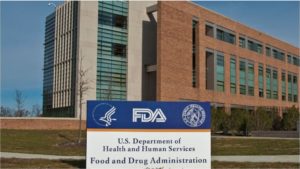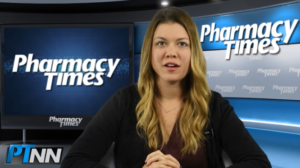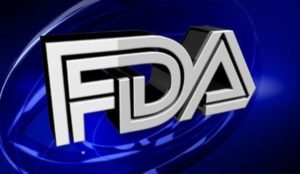- Beijing buyers club? China’s cancer patients gamble on gray market (reuters.com)
There is no official data on how many cancer patients in China turn to unregulated channels, but research indicates an increase globally in the use of gray and counterfeit markets...Medicines bought through unofficial channels are not necessarily harmful, and some of the Indian generics available online are approved for use in other markets. But they can include drugs that are ineffective or fake...The reason patients in China turn to these unregulated channels are largely financial...Low average salaries, a chasm between urban and rural wealth, and creaking state reimbursement schemes mean serious disease is among the leading causes of poverty, creating a major social burden and rising debt...Turning to unofficial channels can also carry a legal risk...It's because of problems with China's public health insurance system that so many seriously ill patients aren't able to survive…
- Brexit threatens supply of new drugs, report warns (reuters.com)
Drugmakers currently use the European Medicines Agency as a one-stop-shop to get drugs licensed across Europe, but Britain is likely to drop out of that system if it severs EU ties and leaves the single market in a scenario dubbed "hard Brexit"...An approach to leaving the EU which saw ideological considerations placed above securing the right relationship for the economy and for UK patients would see the UK life sciences sector relegated to a second-tier player...Being cut off from the European system could put British patients at the back of the queue for new medicines because applications for new licenses from Europe...warning comes amid growing concern that Britain's successful pharmaceutical and biotechnology sector could be hit hard...In addition to worries about trade barriers and drug regulation once Britain leaves the EU, industry executives are concerned about their ability to recruit foreign staff and loss of EU science funding...
- Behind the Sarepta drug approval was intense FDA bickering (statnews.com)
The run-up to Monday’s approval of a Sarepta Therapeutics drug to treat Duchenne muscular dystrophy was marked by unusual bickering inside the Food and Drug Administration, where debate over a key scientific question morphed into a formal dispute, and the head of the drug review division was accused of being too intensely involved in the process for evaluating the medicine...the decision to greenlight the drug fell to the FDA Commissioner, Dr. Robert Califf...he deferred to Dr. Janet Woodcock, the controversial head of the drug review division, who pushed hard to approve the Sarepta medication but clashed with other FDA officials along the way...This has been a highly charged issue and has transformed the Sarepta drug into a litmus test for agency approval of new medicines, notably for diseases with unmet medical needs. Seen through that prism...approving the drug would be detrimental to the FDA approval process on a long-term basis.
- Biosimilar names may affect pharmacist dispensing habits (statnews.com)
A newly released survey suggests variations in how biosimilars are named may affect the willingness of pharmacists to substitute a so-called interchangeable biosimilar for a more expensive biologic. While a biosimilar is supposed to be highly similar to a biologic, interchangeability confers a higher threshold — it’s a distinct regulatory description for a biosimilar producing the very same clinical result as a biologic...So far, the US Food and Drug Administration has approved just two biosimilars, although neither is deemed interchangeable with a brand-name biologic. There is ongoing debate, meanwhile, about the extent to which the names given to any and all biosimilars will make it harder to track side effects, or confuse doctors and pharmacists, some of whom may regard these new drugs with skepticism...nearly 20 states have so far passed laws that allow pharmacists to substitute an interchangeable biosimilar for a brand-name biologic without the prescribing physician intervening..."Pharmacists are a last line of defense — they either recommend a product or discourage its use," said Daniel Tomaszewski, the study author, who is a pharmacist..."If pharmacists are less confident or uncomfortable, it could reduce the use or uptake of a product, because they can affect the view the general public has toward a product."
- As drug approvals dive in 2016, returns on R&D deteriorate (reuters.com)
The global pharmaceuticals industry is set to win the lowest annual number of new drug approvals this year since 2010...drugmakers' returns on research investment are deteriorating...Only 19 new drugs have been approved in the key U.S. market so far in 2016 and, with less than three weeks to go, it is clear the full-year tally will be well down on 2015 and 2014's bumper haul of 45 and 41 new products respectively...At the same time the profitability of drug research is being squeezed by steadily rising costs and increasing political pressure over the high prices of many modern medicines...As a result projected returns on investment in research and development for the top 12 pharmaceutical companies have fallen to just 3.7 percent this year from a high of 10.1 percent in 2010…
- Pharmacy Week in Review: October 14, 2016 (pharmacytimes.com)
Kelly Walsh, PTNN. This weekly video program provides our readers with an in-depth review of the latest news, product approvals, FDA rulings and more.
- FDA staff flags concerns about Pfizer’s quit-smoking drug study (reuters.com)
Pfizer Inc's trial data on Chantix, a drug to help people quit smoking, failed to impress U.S. Food and Drug Administration scientists, in a blow to the company's attempts to have a serious warning removed from the drug's label...The FDA...expressed concerns about the collection and interpretation of data from a post-marketing study on the controversial drug...Pfizer has been trying to have the "black box" warning - which warns of psychiatric risks including suicidal thoughts, hostility and agitation - removed from the drug's label...the study...compared Chantix or...Zyban with a placebo or a nicotine patch in smokers with and without a history of psychiatric disorders, showed that the drug did not significantly increase the incidence of serious neuropsychiatric side-effects...FDA staff disputed the results, flagging inconsistencies in data collection and characterization of the severity of some side-effects...
- More generics consolidation coming? Novartis deal rumors point up the industry’s troubles (fiercepharma.com)
If Novartis does snap up Amneal to beef up its own Sandoz unit, the deal will say as much about the state of the generics industry as it does about Novartis...True, Novartis is having trouble with its Alcon ophthalmology unit and it's been shopping for deals for some time. But generics companies have their own struggles, and building up by dealmaking is one way to combat them…Pricing pressures are putting a damper on sales and profits, and many analysts believe this pressure will only increase. The bigger generics makers are consolidating to become even bigger, because scale means better margins...Meanwhile, the FDA is under pressure to speed generics through the approval process, thanks to Mylan’s EpiPen pricing scandal and the attention it brought to copycat drugs with few-to-no generic competitors...the FDA is planning a renewal of the Generic Drug User Fee Act that would limit review time to 8 months...Look for the consolidation discussion to continue in generics, because the pricing problems, accelerating approvals and margin pressure aren’t going away anytime soon...
- Did the FDA set ‘a dangerous precedent’ with its latest drug approval? (statnews.com)
The experimental drug (eteplirsen) that federal regulators approved Monday will only be used by a few thousand patients...But the approval may have set a precedent that could rocket through the health care system, opening the door for drug makers to get more medicines to market — even with scant evidence that they work...The...decision...elated families struggling with Duchenne muscular dystrophy, a rare and deadly disease....It also touched off a barbed debate between those who applauded the move as giving hope to desperate patients — and those who warned it would backfire since there is no clear evidence the drug works...The approval sets “a dangerous precedent,” said Diana Zuckerman, president of the National Center for Health Research. “A decade from now, will we look back at this approval as a turning point when the FDA ceased to function as a public health agency?”
- The government agency in charge of approving drugs gets a surprising amount of money from the companies that make them (businessinsider.com)
Getting a drug all the way to approval is no easy feat — for pharmaceutical companies or for regulators...in 1992, the Prescription Drug User Fee Act was passed, making it the law for pharmaceutical companies to directly pay the FDA to review their applications for drug approvals. That way the FDA has more resources to conduct rigorous and timely reviews, pharma companies get products through the regulatory pipeline faster, and patients get new drugs more quickly. Win-win-win, right?...That's one way to look at it. But others have argued that PDUFA...puts the FDA in the pockets of the drug industry...In the same way that doctors are accused of subjecting themselves to bias when they receive consulting or speaker fees from a drug company, so has the FDA been accused of kowtowing to the pharmaceutical industry... since PDUFA was passed in 1992, pharma companies have contributed $7.67 billion to the federal agency…User fees are increasingly central to the funding of the drug, biologic and device review programs, and in some cases these fees account for a larger proportion of the FDA budget than congressionally appropriated monies...










